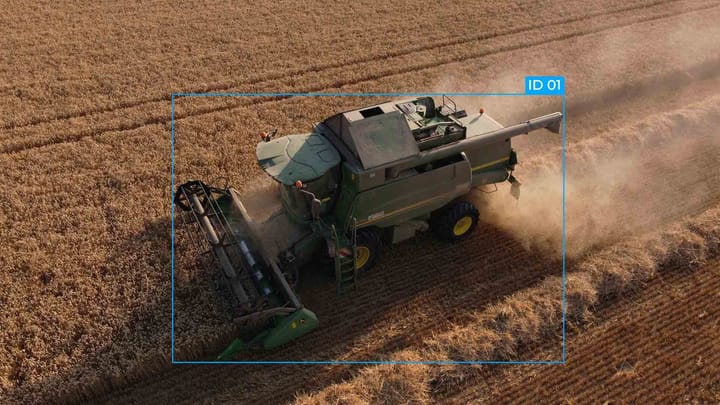Data Annotation Jobs: Understanding Your Earning Potential

Data annotation jobs are key to AI and machine learning development. This field often has numerous open positions, perfect for anyone wanting to grow their career. By joining variousplatforms you can gain valuable skills and increase your income. There are over 100,000 people in the world who have succeeded in the data annotation industry.
Key Takeaways
- Data annotation jobs can earn individuals $10-$20 per hour.
- Skilled data annotators have the potential to earn more.
- Joining data annotation platforms can lead to career growth and valuable AI experience.
- Data annotation provides numerous job vacancies and stable employment opportunities in AI and machine learning.
Introduction to Data Annotation Jobs
Data annotation jobs open doors into the big world of AI and machine learning. Annotation includes tasks like tagging images or sorting text.
The pay for AI data annotating depends on your skills, where you work, and your experience. By looking at average wages in the field, you can understand what to expect. Your pay could be influenced by how much you know, your degree, or the company size.
For example, at Datapure, a Data Annotation Specialist earns around $42,986 a year. This can vary, with the highest salary at $48,241 and the lowest at $38,353 annually. The hourly wage at Datapure is about $21. However, this pay would often be significantly lower in developing countries.
As more industries value annotated data, the need for data annotators grows. This means more opportunities and better pay as companies fight to hire the best. Where you work matters too; some places pay more due to higher living costs.
The data annotation field is booming, with more companies looking for skilled annotators. As the need for these services goes up, so do the salaries. Working in data annotation is not just about a salary; it's a chance to be part of AI's future.
The Role of Data Annotation in AI and Machine Learning
Data annotation is key in making AI and machine learning models work well. It means marking data correctly. If you do this job right, the model gets the exact details it needs to be very effective.
Importance of Accurate Labeling
Putting the right labels on data is crucial in AI and machine learning. Data annotators make sure the data is good. This directly affects how well AI models work.
The need for accurate annotations is growing fast. It helps AI technologies in many fields. Those who are really good at this can earn great salaries. Employers look for experts who can make data annotation more precise and efficient.
Types of Data Annotation Tasks
Data annotation covers many tasks. It includes detecting and classifying objects in images. Think about how this helps in areas like self-driving cars and healthcare.
Working on entity recognition in text helps with making sense of language. Tagging audio metadata is crucial for recognizing voices. These tasks are important for AI and machine learning. The job salaries vary based on task complexity.
The need for skilled data annotators is going up. Those with special skills and knowledge can earn more. There are lots of opportunities for a good career in data annotation. You need to keep learning to stay on top of the field.
Knowing the average salary for different annotation roles is valuable. It shows you what you might earn and how your career can grow. This fits into the big picture of AI and machine learning, where good data annotation is vital.
Getting Started with Data Annotation Jobs
Starting in data annotation needs certain skills, especially for beginners. These jobs involve accurately labeling data, which is key for training AI. It's crucial to be detail-oriented and good with tech. These skills help you stand out in the field. In data tagging jobs, you can earn a good salary working from home.
Skills Required for Data Annotation
To be good at data annotation, you need certain skills:
- Attention to Detail: Making sure data is correctly labeled for AI accuracy.
- Technical Proficiency: Being familiar with data labeling tools to work efficiently.
- Time Management: Managing multiple tasks within deadlines.
- Organizational Thinking: Arranging your work to be more productive.
- Continuous Learning: Keeping up with the newest data annotation trends and tools.
Where to Find Data Annotation Opportunities
There are many places to find data annotation work, whether you're new or experienced. Some top platforms include:
- Amazon Mechanical Turk
- Appen
- Keymakr
- Labelbox
- SuperAnnotate
These platforms let you work from anywhere and offer various projects. People from different fields have also succeeded in this area, going from freelancers to leading AI roles.
The pay for machine learning data tagging work ranges from $10 to $70+ an hour. If you are skilled and hard-working, these remote jobs can be quite profitable. They may even pay as much as regular office jobs. However, starting positions can also be paying around minimal wage, so don't set your hopes too high.
Data Annotation Job Salary
Data annotation job salaries vary a lot. This is because of different levels of experience, skills, and task complexity. The data labeling pay scale. For skilled workers, this field can be quite financially rewarding.
Data Labeling Pay Scale: What to Expect
Knowing what you could make in data annotation is key for anyone thinking about this career. The pay for data annotators changes a lot, based on your skills, how much you've worked before, and where you are. This guide will show you what you might earn, no matter if you're just starting or already a pro.
Entry-Level Pay
If you're new to data annotation, you shouldn't expect to be making too much even with an established company on the market, $10-20/hour is usually the norm for a beginner annotator in the United States.
Experienced Annotator Rates
With more experience and skills, your pay as a data annotator can go up. Specializing in areas like machine learning or computer vision can mean earning more. Employers pay better for these advanced skills, and where you work and your education also matter. In fields like autonomous vehicles or healthcare, your salary can be quite high, showing how experienced workers can make a lot more.
The pay in data labeling is good for starters and pros alike. As the field keeps growing, salaries look set to improve for those who keep building their expertise.
AI Data Annotator Wage vs. Global Standards
The rise of artificial intelligence (AI) has increased the need for data annotators. Professionals in this field see different pay based on where they work, their skills, and experience. Across the globe, the value of their work in AI is clear, even though pay varies.
In the U.S., data annotation jobs pay decently, from $15 to $70 an hour. Those at the top, like ML Data Operations Leads, can make $117,000 to $350,000 a year. This shows how well-paying and vital these jobs are, especially in tech-heavy areas.
Worldwide, data annotator wages vary widely. Newcomers earn about $5 an hour in many developing countries. Yet, experts might make $65+ an hour for their advanced work. The pay of freelancers and contractors can range even more wildly, from $25,000 to $90,000 annually.
Many full-time roles offer extra perks like health insurance and paid time off. Having sharp skills, like precision and tech know-how, is key in this field. It helps at every pay level.
Machine Learning Data Tagging Compensation
Compensation for machine learning data tagging matches the required specialized skills. It reflects the precise effort needed to perfect AI models. Skilled data annotators receive high pay. This is because their work is complex and demands advanced expertise.
Impact on AI Model Performance
Your skill in data labeling doesn't just affect your pay. It greatly affects how well AI models perform. Making precise and detailed notes is key to training reliable algorithms. People with experience in machine learning or special annotation tools are in high demand. They usually earn more because their skills are so valuable. Businesses understand the importance of tagged data for AI. This growing need means there are good opportunities for people to grow their pay and skills. This is due to a lack of experts and the ongoing need to improve skills.
Summary
The money you make as a data annotator ranges widely. It depends on your experience, skills, and especially where you work - you should look for how much positions pay in your country.
Companies are looking for more data annotators. They think the demand will keep growing. So, it's very important to keep improving your skills to do well in AI. Where you work and how much it costs to live there also affects your pay. If you have a job in managing others, you might get more too.
Learning new ways to annotate data can also boost how much you earn and make you more valuable in this field. The work of data annotators is key to pushing technology forward. So, the job isn't just important now, it will be even more important in the future.
FAQ
What skills are required for a career in data annotation?
To be good at data annotation, you need sharp eyes, accuracy, and know-how with labeling tools. Knowing about image recognition or text categorization also helps.
Where can I find data annotation job opportunities?
You can look for data annotation gigs on sites like Amazon Mechanical Turk, Appen, Keymakr, Remotasks, and Labelbox. These places have lots of jobs and let you work flexibly.
How important is accurate labeling in AI and machine learning?
Getting labels right is key for AI and machine learning to work well. It helps the models understand the data they're using, making their predictions more reliable.
What types of tasks are involved in data annotation?
Data annotation jobs include marking images, finding objects, sorting text, recognizing names, and adding tags to sounds. Each task teaches AI in a different way.
What factors influence the salary of a data annotator?
How much you earn depends on your experience, the job’s complexity, and how much you work. Speaking more than one language or having special skills can also increase your pay.
How does the AI data annotator wage compare globally?
AI data annotators’ pay changes based on the country's economy and skill demand. In the U.S., annotators earn about $20 an hour, but it varies elsewhere.
What are the benefits of remote data annotation jobs?
Remote data annotation work lets you choose your hours, balance life and work, and work from home. It fits well with different lifestyles and needs, offering a flexible schedule.
How does cultural and language knowledge impact data annotation salaries?
Knowing about culture and languages can make your data annotation work more accurate. This skill often leads to better pay for annotators.
Why are specialized data annotation tasks important?
Specialized tasks in data annotation fine-tune AI models, requiring expert-level skills and precision. They are critical for the AI systems’ accuracy and dependability.



Comments ()